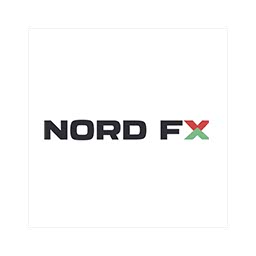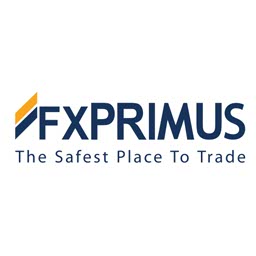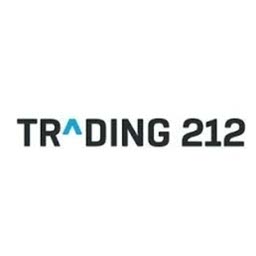Best Canadian High Leverage CFD Brokers
If you're a trader in Canada exploring the world of high leverage CFD brokers, it's essential to tread carefully. In this article, we empower you with insights from a consumer rights perspective. Discover the key factors to consider when choosing the best CFD broker for your financial journey. From regulatory compliance to transparent fee structures, we'll help you navigate the complex landscape. Your financial well-being is paramount, and we'll arm you with the knowledge to safeguard your interests. Let's embark on this journey to find trustworthy and consumer-friendly CFD brokers in Canada.
In Canada, the intricate dance of trading CFDs is choreographed by a regulatory framework that puts stringent limits on leverage. The Investment Industry Regulatory Organization of Canada (IIROC) dons the role of the watchful guardian, overseeing the financial stage where CFD traders perform their high-wire acts.
Leverage, the financial trampoline allowing traders to amplify their positions, is restrained within the Canadian context. For major currency pairs, a 50:1 leverage cap prevails, while exotic currencies, indices, and commodities waltz at a 20:1 limit. IIROC's aim is to safeguard traders from overextending themselves, ensuring that the risks associated with high leverage are tamed within manageable bounds. So, as a CFD trader in the Great White North, remember to keep a prudent eye on those leverage limits and adhere to the regulatory requirements.
Best Canadian High Leverage CFD Brokers Table of Contents
- What are the key features to consider when comparing high-leverage CFD brokers in Canada?
- Which high-leverage forex brokers offer the most competitive spreads for Canadian traders?
- How do high-leverage forex brokers in Canada ensure regulatory compliance and security for traders?
- What is the maximum leverage offered by the best forex brokers in Canada for CFD trading?
- Are there any Canadian-specific regulations or restrictions on high-leverage forex trading?
- What are the minimum deposit requirements for opening an account with high leverage forex brokers in Canada?
- Which high-leverage forex broker in Canada offers the most user-friendly trading platform for forex trading?
- Do high-leverage CFD brokers in Canada offer educational resources and tools for novice forex traders?
- How do Canadian traders ensure the safety of their funds when using high-leverage forex brokers?
- What are the advantages and disadvantages of using high leverage when trading forex in Canada?
- Advantages:
- Disadvantages:
- Can you explain the risk management practices recommended when using high-leverage forex brokers?
- Are there any hidden fees or charges associated with trading with high-leverage CFD brokers in Canada?
- How do high-leverage forex brokers in Canada handle margin calls and liquidations during volatile market conditions?
- Best Canadian High Leverage CFD Brokers List Compared

When online trading, finding the best high-leverage CFD brokers in Canada is a priority for both retail and professional clients. These brokers offer access to leverage that amplifies your trading capital, allowing you to trade Forex, CFDs, and a range of assets like stocks, stock indices, and more. This article explores the top high-leverage brokers reviewed for Canadian traders, highlighting the key features and offerings that make them the best high-leverage brokers in the industry. From multiple trading platforms to access leverage and regulatory compliance, we delve into the essentials you need to know to optimize your trading capital in the dynamic world of financial markets.
What are the key features to consider when comparing high-leverage CFD brokers in Canada?
When evaluating high-leverage CFD brokers in Canada, it's essential to consider several key features to make an informed decision:
-
Licensing and Regulation: Ensure the broker is regulated by the relevant Canadian authorities, such as the Investment Industry Regulatory Organization of Canada (IIROC). Regulatory compliance is crucial for the safety of your funds.
-
Leverage Options: Compare the maximum leverage offered by different brokers. Some may offer higher leverage than others, which can significantly impact your trading strategy.
-
Trading Instruments: Look at the range of asset classes and major currency pairs available for trading. A diverse selection allows you to diversify your portfolio.
-
Trading Platforms: Assess the quality and user-friendliness of the trading platforms provided. Make sure they offer the tools and features you need for effective trading.
-
Spreads and Fees: Consider the spreads and any other trading fees, such as commissions or overnight financing charges. Lower costs can enhance your profitability.
-
Risk Management: Evaluate the risk management tools and features offered by the broker. Use stop-loss orders and negative balance protection to safeguard your capital.
-
Customer Support: Check the availability and responsiveness of customer support. Quick assistance can be crucial during volatile market conditions.
-
Educational Resources: Look for brokers that offer educational resources and tools for both novice and experienced traders.
By carefully examining these key features, you can choose the high-leverage CFD broker in Canada that aligns with your trading goals and risk tolerance.
Which high-leverage forex brokers offer the most competitive spreads for Canadian traders?
When seeking competitive spreads from high-leverage forex brokers in Canada, consider the following options:
-
IC Markets: Known for its competitive spreads on major currency pairs like EUR/USD, IC Markets caters to Canadian traders and offers a range of currency pairs.
-
XTB: XTB provide access to direct market access and offer competitive spreads, especially for professional clients.
-
XM: XM is a popular choice for Canadian traders, offering tight spreads and a variety of currency pairs.
-
Pepperstone: Pepperstone provides access to multiple account types and competitive spreads on major forex pairs.
-
AvaTrade: AvaTrade offers competitive spreads and a wide range of currency pairs for Canadian traders.
When comparing these high-leverage forex brokers, consider factors such as your preferred trading platform, available currency pairs, and any additional features like research tools or educational resources. Your choice should align with your trading preferences and objectives.
How do high-leverage forex brokers in Canada ensure regulatory compliance and security for traders?
High-leverage forex brokers in Canada must adhere to strict regulatory standards to ensure the security and protection of traders. Here's how they achieve this:
-
Regulatory Oversight: These brokers are typically regulated by Canadian authorities, such as the Investment Industry Regulatory Organization of Canada (IIROC). They must comply with IIROC rules and regulations to operate legally.
-
Segregated Accounts: Brokers segregate client funds from their operational funds. This separation ensures client funds remain safe and can't be used for the broker's business expenses.
-
Financial Audits: Regular financial audits are conducted to ensure the broker maintains sufficient capital reserves.
-
Risk Disclosures: Brokers are required to provide comprehensive risk disclosures to traders, including the risks associated with high-leverage trading. Be aware of potential losses.
-
Negative Balance Protection: Many brokers offer negative balance protection, preventing traders from losing more than their initial investment.
-
Data Security: Brokers implement robust cybersecurity measures to protect traders' personal and financial information from cyber threats.
-
Client Education: High-leverage forex brokers often provide educational resources to help traders understand the risks and make informed decisions.
-
Complaint Handling: Regulatory bodies oversee complaint handling procedures to address any disputes between traders and brokers fairly.
By complying with these regulations and security measures, high-leverage forex brokers in Canada prioritize the safety and protection of their clients.
What is the maximum leverage offered by the best forex brokers in Canada for CFD trading?
The maximum leverage offered by the best forex brokers in Canada for CFD trading can vary, but it typically ranges from 30:1 to 50:1 for major currency pairs. However, it's important to note that leverage limits are subject to regulatory changes and may vary depending on the asset class. Here's a breakdown:
-
Major Currency Pairs: The maximum leverage for major currency pairs like EUR/USD or USD/JPY is often around 30:1 to 50:1, as these are considered less risky.
-
Minor and Exotic Currency Pairs: Leverage for minor and exotic currency pairs can be lower, typically around 20:1.
-
Commodities and Indices: When trading CFDs on commodities or indices, leverage might range from 10:1 to 20:1.
-
Stock CFDs: Leverage for stock CFDs can be lower, often limited to 5:1 for individual stocks.
It's crucial to check the specific leverage limits with your chosen broker, as they must adhere to Canadian regulations, such as those set by the IIROC. Consider your risk tolerance and trading strategy when selecting the appropriate leverage level.
Are there any Canadian-specific regulations or restrictions on high-leverage forex trading?
There are Canadian-specific regulations and restrictions on high-leverage forex trading. The primary regulatory body overseeing this in Canada is the Investment Industry Regulatory Organization of Canada (IIROC). Here are some key points to consider:
-
Leverage Limits: IIROC regulations impose leverage limits on retail investors. As of my last knowledge update in September 2021, the maximum leverage for major currency pairs was set at 30:1, while for minor currency pairs, it was 20:1. These limits can change, so always check for the most up-to-date information.
-
Suitability Assessment: Brokers must conduct a suitability assessment to ensure that high-leverage trading is appropriate for each retail investor. This assessment considers the investor's financial situation and risk tolerance.
-
Margin Requirements: IIROC sets margin requirements, ensuring that traders have sufficient capital to cover potential losses.
-
Negative Balance Protection: Brokers must provide negative balance protection, preventing traders from losing more than their initial investment.
-
Client Funds Protection: IIROC-regulated brokers are required to segregate client funds from their operational funds, enhancing the protection of trader funds.
-
Risk Warnings: Brokers must provide clear risk warnings to clients about the dangers of high-leverage trading.
Always check with your chosen broker and review the latest IIROC regulations to ensure compliance and stay informed about any changes in leverage limits or trading rules.
What are the minimum deposit requirements for opening an account with high leverage forex brokers in Canada?
The minimum deposit requirements for opening an account with high-leverage forex brokers in Canada can vary significantly depending on the broker and the type of account you choose. Here's a general overview:
-
Standard Accounts: Many brokers offer standard trading accounts with minimum deposits ranging from $100 to $500. These accounts often have lower leverage and may be suitable for novice traders.
-
ECN/STP Accounts: Electronic Communication Network (ECN) or Straight Through Processing (STP) accounts tend to have higher minimum deposit requirements, often starting at $1,000 or more. These accounts offer tighter spreads but may require more significant capital.
-
VIP or Pro Accounts: Brokers may offer VIP or professional accounts with even higher minimum deposit requirements, typically ranging from $10,000 to $100,000 or more. These accounts often come with the highest leverage and additional benefits.
-
Demo Accounts: Most brokers also provide free demo accounts with no minimum deposit. These are excellent for practising trading strategies without risking real capital.
The minimum deposit requirement is just one factor to consider when choosing a broker. It's important to align your choice with your trading goals, risk tolerance, and preferred trading style. Additionally, check if the broker offers different account types to suit your needs.
Which high-leverage forex broker in Canada offers the most user-friendly trading platform for forex trading?
Several high-leverage forex brokers in Canada offer user-friendly trading platforms tailored to the needs of traders. One of the brokers known for its user-friendly platform is Questrade. Here are some of its features:
-
Questrade IQ Edge: Questrade's proprietary platform, IQ Edge, offers a customizable and intuitive interface. It provides advanced charting tools, technical indicators, and real-time market data.
-
Web-Based Platform: Questrade also offers a web-based trading platform accessible from any browser. It's user-friendly and suitable for traders who prefer to avoid downloading software.
-
Mobile Trading: Questrade's mobile app allows traders to access their accounts and trade on the go. It's available for both iOS and Android devices.
-
Education and Support: Questrade provides educational resources and a responsive customer support team to assist traders, making it beginner-friendly.
-
Research Tools: The platform offers research tools and market insights to help traders make informed decisions.
-
Security: Questrade prioritizes the security of client accounts and offers two-factor authentication for added protection.
While Questrade is one option, remember that choosing a user-friendly trading platform can be subjective. It's essential to explore different brokers' platforms and choose the one that aligns with your preferences and trading style.
Do high-leverage CFD brokers in Canada offer educational resources and tools for novice forex traders?
Many high-leverage CFD brokers in Canada offer educational resources and tools to support novice forex traders. These resources can help beginners build their knowledge and skills. Here's what you can typically expect:
-
Educational Webinars: Brokers often host webinars covering various topics, including forex basics, technical analysis, and trading strategies. These webinars are accessible to traders of all experience levels.
-
Video Tutorials: Video tutorials explain key concepts, trading platforms, and strategies in an easily digestible format. They are ideal for visual learners.
-
Ebooks and Guides: Brokers provide ebooks and guides that cover a wide range of topics, from understanding forex markets to risk management techniques.
-
Demo Accounts: Most brokers offer free demo accounts that allow novice traders to practice trading with virtual money. It's an excellent way to gain hands-on experience without risking real capital.
-
Market Analysis: Brokers often provide daily or weekly market analysis reports, helping traders understand market trends and potential trading opportunities.
-
Customer Support: Brokers typically offer responsive customer support to answer questions and provide guidance to novice traders.
-
Trading Tools: Some brokers offer trading tools like economic calendars and trading calculators to assist traders in making informed decisions.
When choosing a high-leverage CFD broker, consider the quality and availability of these educational resources, as they can significantly impact your learning journey as a novice trader.
How do Canadian traders ensure the safety of their funds when using high-leverage forex brokers?
Canadian traders can take several steps to ensure the safety of their funds when using high-leverage forex brokers:
-
Regulatory Compliance: Verify that the broker is regulated by Canadian authorities, such as the Investment Industry Regulatory Organization of Canada (IIROC). Regulatory oversight helps protect your funds.
-
Segregated Accounts: Choose a broker that segregates client funds from their operational funds. This separation ensures that your money remains safe, even if the broker faces financial difficulties.
-
Negative Balance Protection: Confirm that the broker offers negative balance protection, preventing you from losing more than your initial investment.
-
Risk Management: Implement effective risk management strategies, including setting stop-loss orders and limiting the size of your positions relative to your account balance.
-
Due Diligence: Conduct thorough research before selecting a broker. Read reviews, check their regulatory history, and ensure they have a strong reputation for fund security.
-
Withdraw Funds: Regularly withdraw profits from your trading account to reduce the amount of capital at risk.
-
Stay Informed: Keep yourself informed about changes in regulations and the broker's policies to ensure ongoing safety.
-
Use Secure Payment Methods: Use secure payment methods, such as bank transfers, to deposit and withdraw funds from your trading account.
By following these steps and being vigilant about the safety of your funds, you can trade when using high-leverage forex brokers in Canada.
Are there any tax implications or considerations for Canadians trading with high-leverage forex brokers?
Tax implications and considerations exist for Canadians trading with high-leverage forex brokers. Here are some important points to keep in mind:
-
Capital Gains Tax: In Canada, profits from trading forex are generally considered capital gains. You are required to report capital gains on your tax return. The tax rate on capital gains varies based on your income and province of residence.
-
Reporting Requirements: Keep detailed records of your forex trading activity, including trades, gains, and losses. This information is necessary for accurate tax reporting.
-
Tax Deductions: You may be eligible for tax deductions related to trading expenses, such as software fees or trading education costs. Consult a tax professional to determine what expenses you can deduct.
-
Tax-Efficient Accounts: Consider using tax-efficient accounts, such as a Tax-Free Savings Account (TFSA) or a Registered Retirement Savings Plan (RRSP), to potentially reduce your tax liability.
-
Tax Professional Advice: It's advisable to seek the guidance of a tax professional or accountant experienced in forex trading to ensure compliance with Canadian tax laws.
-
Filing Deadlines: Be aware of tax filing deadlines to avoid penalties and interest charges.
-
Foreign Exchange Gains and Losses: Be prepared to account for foreign exchange gains and losses when converting your trading profits to Canadian dollars.
It's crucial to stay informed about tax regulations and consult with a tax professional to ensure you meet your tax obligations while trading with high-leverage forex brokers in Canada.
What are the advantages and disadvantages of using high leverage when trading forex in Canada?
High leverage in forex trading offers potential benefits but comes with significant risks. Here are the advantages and disadvantages:
Advantages:
-
Magnified Profits: High leverage allows you to control larger positions with a relatively small amount of capital, potentially amplifying your profits.
-
Diversification: With less capital tied up in individual trades, you can diversify your trading portfolio across multiple currency pairs.
-
Smaller Initial Investment: High leverage enables traders to start with a smaller initial deposit, making forex trading accessible to a broader range of investors.
-
Hedging: Leverage can be used for hedging purposes, allowing you to offset potential losses in one trade with gains in another.
Disadvantages:
-
Increased Risk: High leverage magnifies both profits and losses. A small adverse price movement can lead to significant losses, potentially wiping out your account.
-
Margin Calls: With high leverage, you're more susceptible to margin calls, requiring you to deposit additional funds to cover losses. Failure to do so can result in the liquidation of your position.
-
Emotional Stress: Trading with high leverage can lead to emotional stress and impulsive decisions, as losses are felt more intensely.
-
Limited Risk Management: It can be challenging to implement effective risk management strategies when using extremely high leverage.
-
Regulatory Limits: Canadian regulations limit the maximum leverage that brokers can offer to retail traders, reducing the available options.
-
Overtrading: High leverage can encourage overtrading, leading to excessive risk-taking and losses.
Successful trading with high leverage requires a solid understanding of risk management and disciplined trading practices. It's crucial to weigh the advantages against the disadvantages and consider your risk tolerance before using high leverage.
Can you explain the risk management practices recommended when using high-leverage forex brokers?
Effective risk management is crucial when trading with high-leverage forex brokers. Here are recommended risk management practices:
-
Set Stop-Loss Orders: Always use stop-loss orders to limit potential losses on each trade. Determine your stop-loss level based on your risk tolerance and analysis of the market.
-
Position Sizing: Calculate the appropriate position size for each trade to ensure that a losing trade doesn't result in a substantial loss of capital.
-
Diversify: Diversification in traded assets can help canadians spread risk.
-
Use Leverage Wisely: While high leverage is available, it doesn't mean you have to use it all. Consider using lower leverage to reduce risk.
-
Risk Capital: Only trade with funds you can afford to lose. Don't use money allocated for essential expenses or savings.
-
Stay Informed: Continuously monitor market conditions and news that can impact your trades. Be prepared to adjust your positions accordingly.
-
Avoid Overtrading: Limit the number of open positions and avoid overtrading, which can lead to impulsive decisions and excessive risk.
-
Practice Discipline: Stick to your trading plan and avoid emotional decision-making, especially during periods of market volatility.
-
Keep Records: Maintain detailed records of your trades, including entry and exit points, to analyze your performance and make improvements.
-
Review and Adjust: Regularly review your risk management strategies and adjust them as needed based on your trading experience.
By implementing these risk management practices, you can trade with high leverage while minimizing the potential for significant losses and protecting your capital.
Are there any hidden fees or charges associated with trading with high-leverage CFD brokers in Canada?
While high-leverage CFD brokers in Canada are transparent about their fees, traders should be aware of potential charges that may take some time to be obvious. Here are some fees to watch for:
-
Spread: The difference between the bid and ask price is the spread. While not a hidden fee, it's essential to consider how spreads can impact your trading costs, especially if you're a frequent trader.
-
Commission: Some brokers charge commissions on trades, particularly for ECN/STP accounts. Be aware of the commission structure and how it may affect your trading costs.
-
Swap or Overnight Financing: If you hold positions overnight, you may incur swap or overnight financing charges. These can vary depending on the broker and the currency pair you're trading.
-
Inactivity Fees: Some brokers may charge inactivity fees if your account remains dormant for a specified period. Be sure to check the broker's policy on this.
-
Withdrawal Fees: While most brokers offer free withdrawals, some may charge fees for certain withdrawal methods or excessive withdrawals.
-
Currency Conversion: If you're trading currency pairs that involve converting your base currency, be aware of potential currency conversion fees.
-
Platform Fees: While many trading platforms are free, some brokers may charge platform fees for certain advanced trading tools or data subscriptions.
-
Deposit Fees: Although less common, some brokers may charge fees for deposits made via specific payment methods, such as credit cards.
To avoid surprises, carefully review the fee structure of your chosen broker before opening an account. Understanding these fees will help you calculate the overall cost of your trades.
How do high-leverage forex brokers in Canada handle margin calls and liquidations during volatile market conditions?
High leverage forex brokers in Canada have specific procedures in place to handle margin calls and liquidations during volatile market conditions:
-
Margin Calls: Canadian trading accounts may be subject to a minimum funded balance. In case of financial loss, your Canadian brokerage may send you a margin call. This call requires the trader to provide funds to meet the margin requirements and maintain open positions. Brokers typically notify traders of margin calls promptly.
-
Liquidation: If a trader fails to meet the margin call by depositing additional funds, the broker may proceed with liquidation. During liquidation, the broker will automatically close out the trader's positions to limit further losses.
-
Volatility Measures: Some brokers may implement additional measures during extreme market volatility, such as widening spreads or increasing margin requirements on specific currency pairs.
-
Communication: Brokers aim to maintain clear communication with traders, especially during volatile periods. They may provide risk warnings, updates on margin requirements, and notifications about changes in trading conditions.
-
Negative Balance Protection: Brokers that offer negative balance protection ensure that traders cannot lose more than their initial investment, even during extreme market conditions.
Traders must understand their broker's specific margin call and liquidation policies. Additionally, traders should diligently manage their positions and risks to prevent margin calls and liquidations, especially in highly volatile markets.
Selecting the best high-leverage broker for Canadian retail investor accounts is crucial. It's imperative to prioritize safety and security by choosing brokers regulated by Canadian authorities and covered by the Canadian Investor Protection Fund. While high leverage can enhance trading potential, it's equally vital to consider the broker's offerings regarding trade CFDs, access to the best high-leverage Forex options, and their presence in the Forex market. By carefully evaluating these factors, traders can make informed choices and navigate the world of high-leverage trading with confidence and peace of mind.
Best Canadian High Leverage CFD Brokers List Compared
| Featured Canadian High Leverage CFD Brokers Trading Platform | Account Features | Trading Features |
|---|---|---|
| Used By: 180,000 Instruments Available: 232 Stocks Available: 2100 US Stocks: Yes UK Stocks: Yes German Stocks: Yes Japanese Stocks: Yes Indices: Yes Forex Pairs Available: 61 Major Forex Pairs: Yes Minor Forex Pairs: Yes Exotic Forex Pairs: Yes Minimum Deposit: 200 |
Platforms: MT4, MT5, Mirror Trader, ZuluTrade, Web Trader, cTrader, Mac Negative Balance Protection: Inactivity Fee: No Losses can exceed depositsVisit |
|
| Used By: 200,000 Instruments Available: 1000 Stocks Available: 99 US Stocks: Yes UK Stocks: Yes German Stocks: Yes Japanese Stocks: Yes Indices: Yes Forex Pairs Available: 80 Major Forex Pairs: Yes Minor Forex Pairs: Yes Exotic Forex Pairs: Yes Minimum Deposit: 100 |
Platforms: Web Trader, MT4, MT5, AvaTradeGo, AvaOptions, Mac, Mobile Apps, ZuluTrade, DupliTrade, MQL5 Negative Balance Protection: Inactivity Fee: No 71% of retail CFD accounts lose moneyVisit |
|
| Used By: 10,000 Instruments Available: 100 Stocks Available: 10000 US Stocks: Yes UK Stocks: Yes German Stocks: Yes Japanese Stocks: Yes Indices: Yes Forex Pairs Available: 60 Major Forex Pairs: Yes Minor Forex Pairs: Yes Exotic Forex Pairs: Yes Minimum Deposit: 100 |
Platforms: MT4, MT5, IRESS, Mac, Web Trader, Tablet & Mobile apps Negative Balance Protection: Inactivity Fee: No Losses can exceed depositsVisit |
|
| Used By: 10,000 Instruments Available: 50 Stocks Available: 0 US Stocks: No UK Stocks: No German Stocks: No Japanese Stocks: No Indices: No Forex Pairs Available: 65 Major Forex Pairs: Yes Minor Forex Pairs: Yes Exotic Forex Pairs: Minimum Deposit: 10 |
Platforms: MT4, MT5, Tablet & Mobile apps Negative Balance Protection: Inactivity Fee: No Losses can exceed depositsVisit |
|
| Used By: 250,000 Instruments Available: 4000 Stocks Available: 1696 US Stocks: Yes UK Stocks: Yes German Stocks: Yes Japanese Stocks: Yes Indices: Yes Forex Pairs Available: 57 Major Forex Pairs: Yes Minor Forex Pairs: Yes Exotic Forex Pairs: Yes Minimum Deposit: 0 |
Platforms: MT4, Mirror Trader, Web Trader, Tablet & Mobile apps Negative Balance Protection: Inactivity Fee: Yes 76% - 83% of retail investor accounts lose money when trading CFDs with this provider. You should consider whether you understand how CFDs work and whether you can afford to take the high risk of losing your money. Visit |
|
| Used By: 89,000 Instruments Available: 100 Stocks Available: 60 US Stocks: No UK Stocks: No German Stocks: Yes Japanese Stocks: No Indices: Yes Forex Pairs Available: 70 Major Forex Pairs: Yes Minor Forex Pairs: Yes Exotic Forex Pairs: Yes Minimum Deposit: 200 |
Platforms: MT4, MT5, Mac, ZuluTrade, Web Trader, cTrader, Tablet & Mobile apps Negative Balance Protection: Inactivity Fee: Yes CFDs are complex instruments and come with a high risk of losing money rapidly due to leverage. Between 74-89 % of retail investor accounts lose money when trading CFDs. You should consider whether you understand how CFDs work and whether you can afford to take the high risk of losing your moneyVisit |
|
| Used By: 10,000,000 Instruments Available: 1000 Stocks Available: 160 US Stocks: Yes UK Stocks: Yes German Stocks: Yes Japanese Stocks: Yes Indices: Yes Forex Pairs Available: 55 Major Forex Pairs: Yes Minor Forex Pairs: Yes Exotic Forex Pairs: Yes Minimum Deposit: 5 |
Platforms: MT4, MT5, Mac, Web Trader, Tablet & Mobile apps Negative Balance Protection: Inactivity Fee: Yes CFDs are complex instruments and come with a high risk of losing money rapidly due to leverage. 77.74% of retail investor accounts lose money when trading CFDs with this provider. You should consider whether you understand how CFDs work and whether you can afford to take the high risk of losing your money.Visit |
|
| Used By: 20,000,000 Instruments Available: 2000 Stocks Available: 2042 US Stocks: Yes UK Stocks: Yes German Stocks: Yes Japanese Stocks: Yes Indices: Yes Forex Pairs Available: 50 Major Forex Pairs: Yes Minor Forex Pairs: Yes Exotic Forex Pairs: Yes Minimum Deposit: 50 |
Platforms: Web Trader, Tablet & Mobile apps Negative Balance Protection: Inactivity Fee: Yes 51% of retail investor accounts lose money when trading CFDs with this provider.Visit |
|
| Used By: 10,000 Instruments Available: 130 Stocks Available: 60 US Stocks: Yes UK Stocks: Yes German Stocks: No Japanese Stocks: No Indices: Yes Forex Pairs Available: 45 Major Forex Pairs: Yes Minor Forex Pairs: Yes Exotic Forex Pairs: Yes Minimum Deposit: 100 |
Platforms: MT4, Mac, Mirror Trader, Web Trader, Tablet & Mobile apps Negative Balance Protection: Inactivity Fee: No Losses can exceed depositsVisit |
|
| Used By: 142,500 Instruments Available: 200 Stocks Available: 52 US Stocks: Yes UK Stocks: Yes German Stocks: Yes Japanese Stocks: Yes Indices: Yes Forex Pairs Available: 150 Major Forex Pairs: Yes Minor Forex Pairs: Yes Exotic Forex Pairs: Yes Minimum Deposit: 100 |
Platforms: MT4, MT5, Web Trader, Tablet & Mobile apps Negative Balance Protection: Inactivity Fee: No Your capital is at riskVisit |
|
| Used By: 15,000,000 Instruments Available: 10000 Stocks Available: 1731 US Stocks: Yes UK Stocks: Yes German Stocks: Yes Japanese Stocks: Yes Indices: Yes Forex Pairs Available: 177 Major Forex Pairs: Yes Minor Forex Pairs: Yes Exotic Forex Pairs: Yes Minimum Deposit: 1 |
Platforms: Web Trader, Tablet & Mobile apps Negative Balance Protection: Inactivity Fee: No CFDs are complex instruments and come with a high risk of losing money rapidly due to leverage. 76% of retail investor accounts lose money when trading CFDs with this provider. You should consider whether you understand how CFDs work and whether you can afford to take the high risk of losing your money.Visit |
|
| Used By: 10,000 Instruments Available: 148 Stocks Available: 64 US Stocks: Yes UK Stocks: Yes German Stocks: Yes Japanese Stocks: Yes Indices: Yes Forex Pairs Available: 40 Major Forex Pairs: Yes Minor Forex Pairs: Yes Exotic Forex Pairs: Yes Minimum Deposit: $100 |
Platforms: MT4, MT5, Mac, Web Trader, Tablet & Mobile apps Negative Balance Protection: Inactivity Fee: No Losses can exceed depositsVisit |
|
| Used By: 10,000 Instruments Available: 15000 Stocks Available: 1000 US Stocks: Yes UK Stocks: Yes German Stocks: Yes Japanese Stocks: Yes Indices: Yes Forex Pairs Available: 55 Major Forex Pairs: Yes Minor Forex Pairs: Yes Exotic Forex Pairs: Yes Minimum Deposit: 1 |
Platforms: Web Trader, Tablet & Mobile apps Negative Balance Protection: Inactivity Fee: No Losses can exceed depositsVisit |
|
| Used By: 4,000,000 Instruments Available: 2200 Stocks Available: 2000 US Stocks: Yes UK Stocks: Yes German Stocks: Yes Japanese Stocks: No Indices: Yes Forex Pairs Available: 67 Major Forex Pairs: Yes Minor Forex Pairs: Yes Exotic Forex Pairs: Yes Minimum Deposit: 100 |
Platforms: MT4, MT5, Web Trader, Tablet & Mobile apps Negative Balance Protection: Inactivity Fee: Yes 67% of retail investor accounts lose money when trading CFDs with this provider. You should consider whether you can afford to take the high risk of losing your moneyVisit |
|
| Used By: 10,000 Instruments Available: 100 Stocks Available: 10 US Stocks: Yes UK Stocks: No German Stocks: No Japanese Stocks: No Indices: Yes Forex Pairs Available: 40 Major Forex Pairs: Yes Minor Forex Pairs: Yes Exotic Forex Pairs: Yes Minimum Deposit: 100 |
Platforms: MT4, MT5, Tablet & Mobile apps Negative Balance Protection: Inactivity Fee: Yes Losses can exceed depositsVisit |
Best Canadian High Leverage CFD Brokers Canadian High Leverage CFD Brokers Reviews
Read our details broker Canadian High Leverage CFD Brokers Canadian High Leverage CFD Brokers reviews, you will find something useful if you are shortlisting a Canadian High Leverage CFD Brokers Canadian High Leverage CFD Brokers and trading platform.
- IC Markets Review (read our in depth reviews)
- AvaTrade Review (read our in depth reviews)
- FP Markets Review (read our in depth reviews)
- NordFX Review (read our in depth reviews)
- XTB Review (read our in depth reviews)
- Pepperstone Review (read our in depth reviews)
- XM Review (read our in depth reviews)
- eToro Review (read our in depth reviews)
- FXPrimus Review (read our in depth reviews)
- easyMarkets Review (read our in depth reviews)
- Trading 212 Review (read our in depth reviews)
- Admiral Markets Review (read our in depth reviews)
- SpreadEx Review (read our in depth reviews)
- Markets.com Review (read our in depth reviews)
- HYCM Review (read our in depth reviews)
Canadian High Leverage CFD Brokers Canadian High Leverage CFD Brokers Alternatives
Read about and compare Canadian High Leverage CFD Brokers Canadian High Leverage CFD Brokers alternatives. We have indepth side by side comparisons to help you find Canadian High Leverage CFD Brokers Canadian High Leverage CFD Brokers related brokers.
- IC Markets Alternatives
- AvaTrade Alternatives
- FP Markets Alternatives
- NordFX Alternatives
- XTB Alternatives
- Pepperstone Alternatives
- XM Alternatives
- eToro Alternatives
- FXPrimus Alternatives
- easyMarkets Alternatives
- Trading 212 Alternatives
- Admiral Markets Alternatives
- SpreadEx Alternatives
- Markets.com Alternatives
- HYCM Alternatives

 IC Markets
IC Markets
 AvaTrade
AvaTrade
 FP Markets
FP Markets
 NordFX
NordFX
 XTB
XTB
 Pepperstone
Pepperstone
 XM
XM
 eToro
eToro
 FXPrimus
FXPrimus
 easyMarkets
easyMarkets
 Trading 212
Trading 212
 Admiral Markets
Admiral Markets
 SpreadEx
SpreadEx
 Markets.com
Markets.com
 HYCM
HYCM
